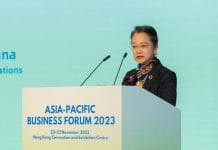By Melissa Norman, Founder and Managing Director, Aisling Group
You have probably seen the phrase the “Great Resignation” pop up with shocking regularity over the past few months. After all, 2020 and 2021 are seen as years of unprecedented layoffs in Malaysia and around the world. Today, with conditions gradually normalising, one might assume that everything is returning to normal and that employees can easily return to work. This is far from the truth!
Our employees have learned a lot about themselves and their work during the pandemic. Many of those who left their jobs due to mass layoffs, have started their own businesses and are now incredibly happy with the flexibility and life balance they have always wanted for them and their families.
Mass layoffs and retrenchments caused by the COVID-19 pandemic have also led to an increase in requests for jobs in the gig economy. Indeed, this industry has defied the pandemic, especially delivery and e-haling services, which to this day continue to take on more laid-off workers and those facing declining incomes.
The gig economy has not only revolutionised the concept of nine to five work but has also changed the way conventional work is viewed due to its flexibility and empowerment; both of which are supportive of the balance between work, family hours and personal needs.
Even women, most of whom as we know are mothers and primary caregivers, find it difficult to stay engaged in a traditional work schedule. This problem started during the pandemic with increased family responsibilities due to children and family members being home all day. Today, as office doors reopen, women who want to keep working are asking for more flexible hours to appreciate the overall quality of life.
So, as corporate Malaysia and SMEs adapt to the full opening of the economy, let us look at factors impacting Malaysia’s very own Great Resignation:
1. Flexible working is not an option; it is a necessity
● Employees want the best of both worlds.
● The pandemic has shown that work is now more focused on results, speed, and flexibility.
● If a company wants to retain employees and attract the best talent, it should consider letting employees choose how they prefer to work; whether it is remote work, in-office, or a hybrid format.
2. Leaders must be in touch with their employees; authentically
● How can we build meaningful relationships as we look forward to a hybrid future?
● The challenge for leaders in a hybrid world goes beyond investing in technology to maximise productivity for profit.
● Today, it is about a deep and heartfelt emotional connection with employees. ● Is this easier said than done? Yes. However, small steps towards greater authenticity can be achieved by simply listening to employees and acting based on their recommendations and requests.
3. There is no wealth without health; sine qua non
● Unfortunately, it took employers a pandemic to recognize that we are ALL in the business of health.
● Many employers already see the need to invest in the health and well-being of their workforce, with the only clear difference being in the ability to act between large and small employers.
● Simple and low-cost initiatives such as biometric checks, health and wellness activities, nutrition support, and meditation classes can make a difference. ● While some employees may ignore them, simply knowing that such programmes are available to them is a tangible benefit towards enhanced employer reputation. ● However, keep in mind that your employees should be the driving force behind your health and wellness strategy; enabling you to purposefully support them, build their self-esteem, and promote relationships between all parties.
4. Talent is everywhere; especially in a hybrid work world
● Hybrid jobs are important for more than just the convenience of employees. ● For employers, it is a powerful tool to overcome talent shortages in various fields, as it can turn freelancers into a viable addition to your workforce.
● Organisations today can choose from a much wider selection of talent, beyond geographical limitations. Like many of the challenges posed by the COVID-19 pandemic, the ‘Great Resignation’ brings with it limitless opportunities for business leaders to rethink their approach to employer-employee relationships. Is it not then best described as the “Great Adaptation”?









